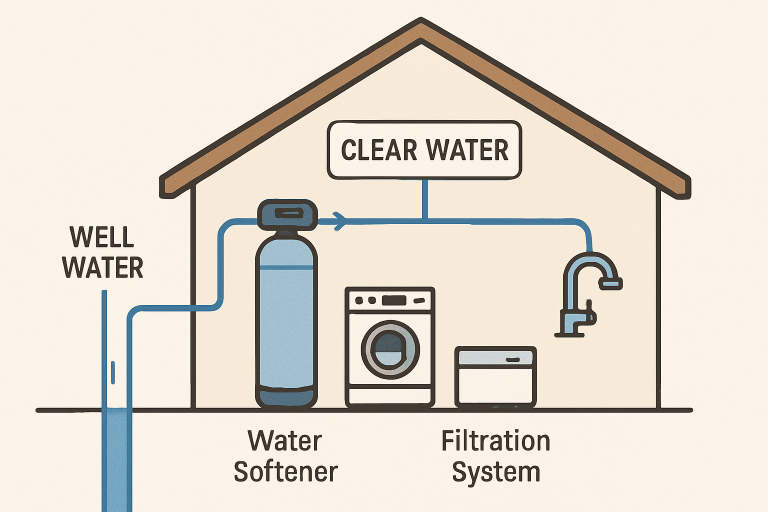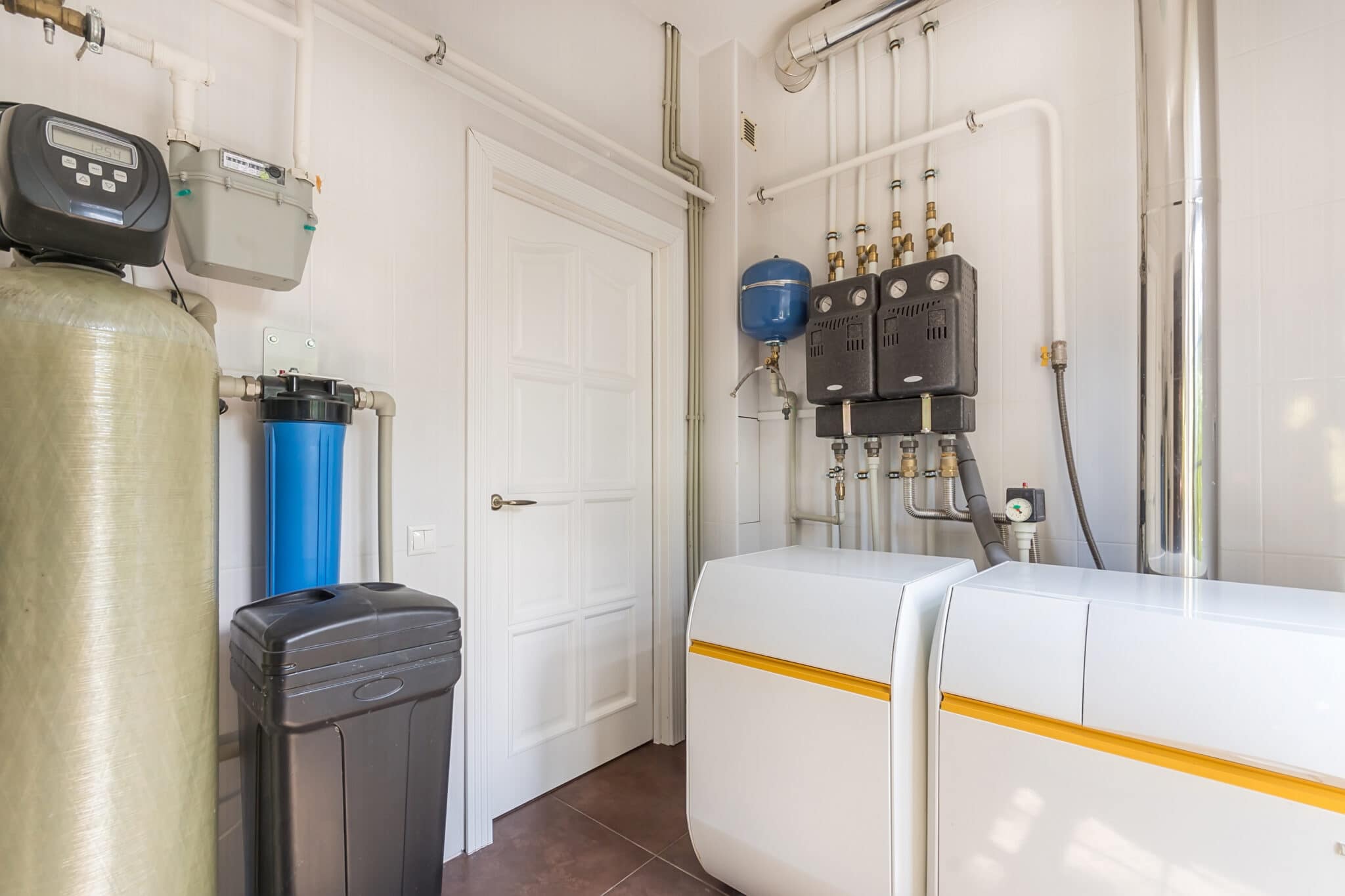- Understanding Hard Water
- Benefits of Water Softeners
- Advantages of Water Filtration Systems
- Economic and Environmental Impact
- Choosing the Right System
- Installation and Maintenance
- Conclusion
Access to clean, soft water means more than just better-tasting beverages and showers—it impacts the comfort, efficiency, and healthiness of your home. Many households, especially those relying on private wells, face the persistent challenge of hard water, which can affect everything from plumbing to personal care. Well water softeners and filtration systems provide a practical solution, ensuring your tap water meets the needs of your family. If you’re experiencing mineral buildup or residue, you may benefit from exploring hard water treatment Tampa and the ways it can enhance your water quality.
Unfiltered or untreated well water can introduce unwanted minerals and contaminants, reducing the usefulness of soaps, shortening the life of appliances, and compromising water’s taste and safety. Installing reliable water softening and filtration systems allows you to take control of what comes out of your tap, promoting better overall household function and wellbeing. This article breaks down the core advantages of these systems, from economic savings to improved hygiene.
Hard water is defined by elevated levels of natural minerals, specifically calcium and magnesium. While these minerals are not directly harmful to your health, their presence in water can lead to scale deposits forming inside pipes and on fixtures. Over time, these deposits restrict water flow, force plumbing and appliances to work harder, and lead to unnecessary repairs and replacements. Hard water also causes soap scum buildup, making it more challenging to keep dishes, laundry, and even your skin clean.
This issue is prevalent for homeowners using well water, as groundwater is often rich in these minerals. Hard water limits the effectiveness of soaps and detergents, prompting increased product usage and more frequent cleaning, which in turn leads to higher utility costs and potential frustration. According to the United States Environmental Protection Agency, testing and treating well water ensures it meets safety and usability standards.
Water softeners are specifically designed to eliminate hardness-causing minerals from your water supply through a process called ion exchange. This addresses several common household inconveniences and provides significant advantages:

- Extended Appliance Lifespan: Softened water prevents mineral scaling within water heaters, dishwashers, and washing machines. Less buildup means your appliances function efficiently and require fewer repairs, ultimately lasting longer.
- Improved Cleaning Efficiency: Soft water enables soaps and detergents to produce more suds, resulting in more effective cleaning. Clothes come out softer, and dishes get sparkling clean with less product—and effort—needed.
- Healthier Skin and Hair: Hard water often leaves a residue on skin and hair, creating dryness and dullness. In contrast, soft water rinses clean, leaving skin smooth and hair manageable and vibrant.
Water filtration systems serve as another critical layer of protection, removing contaminants that might escape municipal oversight or are present in private wells. These may include chlorine, sediment, organic compounds, and potentially harmful bacteria. The key benefits of installing a filtration system in your home include:
- Enhanced Taste and Odor: Filtration eliminates metallic, chlorinated, or earthy tastes and odors, making every glass of water more enjoyable.
- Reduced Health Risks: Removing sediments and microorganisms provides safer drinking water, lowering the chance of waterborne illnesses.
- Protection for Plumbing: By filtering out grit, rust, and solids, these systems help avoid clogging and corrosion, reducing the need for costly plumbing repairs.
For those seeking additional information on improving water quality at home, resources such as the National Sanitation Foundation’s guide to water filters and treatment offer practical, research-backed insights.
Besides household comfort, water softening and filtration systems yield impressive long-term financial and environmental returns:
- Lower Energy Bills: Appliances running on soft, clean water require less energy to function, as they aren’t fighting mineral deposits or sediment. This translates into noticeable savings on utility bills over time.
- Reduced Cleaning Product Usage: With more effective soap action, households use fewer detergents and cleaning agents, cutting costs and minimizing chemical discharge into wastewater systems or septic tanks.
- Decreased Plastic Waste: Households confident in their filtered tap water buy less bottled water, which significantly reduces plastic use and waste generation—a benefit for the planet.
The ideal water treatment solution for your home depends on several factors. Begin by testing your well water to identify whether the primary concern is hardness, contaminants, or both. Other critical considerations include the size of your household and its typical water usage, which affect the required capacity of any installed system. Consulting a water treatment specialist helps tailor recommendations, ensuring the chosen equipment matches your specific quality and quantity needs. Professional guidance also ensures that any solution remains effective for years, adapting to your family’s changing needs.
The performance of water softening and filtration systems depends on correct installation and diligent maintenance:
- Professional Installation: Installing these systems requires expertise in plumbing and water flow management. Professionals ensure proper integration, avoiding leaks or inefficiencies.
- Routine Maintenance: Scheduled inspections and periodic servicing help extend system life, maintain high-quality water, and identify issues before they escalate.
- Filter Replacement: Regularly changing filters is crucial for maintaining optimal water flow and filtration performance. Failing to keep the system can compromise both water quality and system integrity.
Adding a well water softener or filtration system to your household does more than improve taste or reduce visible stains—it safeguards plumbing, supports your family’s health, saves money, and lowers your environmental footprint. By understanding your specific water challenges, reviewing treatment options, and maintaining routine care, you can ensure a consistent supply of high-quality water, making each day safer, more comfortable, and more economical.

